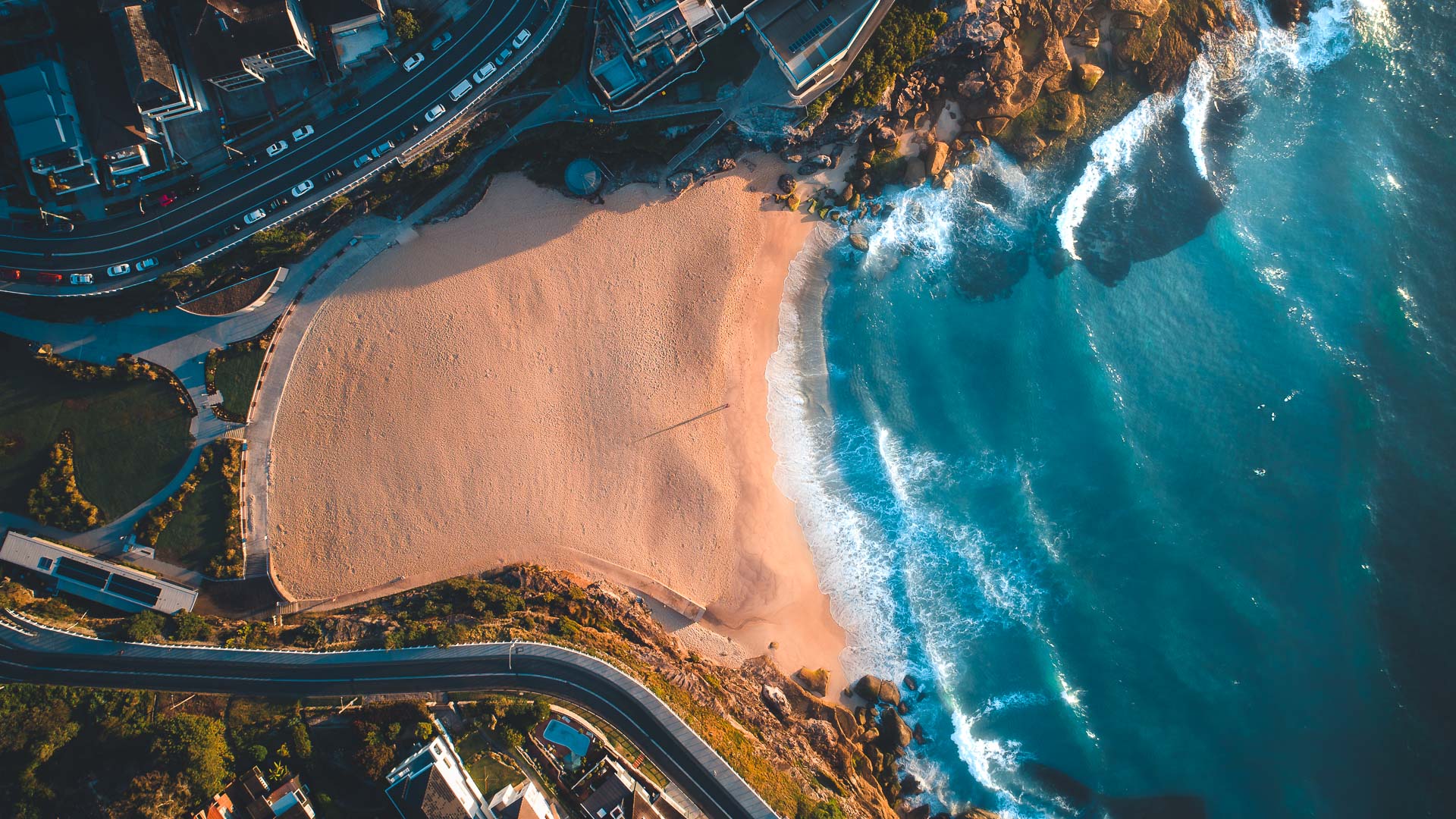2020 was supposed to be my year—although I suppose many people also felt that way.
Late last year in 2019, I quit my job to pursue photography full time. I cast aside a successful, decade-long career in User Experience and Product Design to seek a new path; one of discovery and documentation through a sensor and a lens.
It was going well; the plan was to turn Japan - a country that feels like my second home - into my world-wide base.
From there I would do the things I needed to do to build a successful business; travelling, taking photos, making meaningful products about Tokyo, Japan and beyond, meeting people, making connections, building a career.
And then, of course, the global pandemic hit, and I, along with the rest of the world, had life choices to make; but little did I realise how those choices would empty the cup of my soul.
I had a 1-year visa. In the past, I had always visited Japan as a tourist (10 times in the last 4 years), never staying for any more than a month at a time (although to be fair, because I was still working for a company, I was never free enough to go any longer than that).
The plan for 2020 was to dig deeper; to really live and thrive in Japan like a local; to experience what the real Japan was like as someone who actually lives there.
As I suspected, it’s a tremendously different experience living in Japan vs just visiting.
What it’s like living in Japan
It’s almost like Japan has two sides to it.
On the side where people visit Japan for short periods - the tourism side - Japan is a shiny place.
It sparkles. It has a culture. It has convenience. It has charisma.
There’s a certain something to it that’s just so different to everywhere else in the world. This is the Japan that most people fall in love with, and if I were more of a blind optimist - over being half realist - I guess I’d still be in this camp too.
However, much in the same vein as spending time really getting to know someone, discovering their good sides and their bad sides, the places you live in have good sides and bad sides too.
Once you discover it all, you have to make a decision: do you accept it as what it is? Or are the negatives too much to bear? Can you see yourself living here long term? Or will you go somewhere else? Can this place truly be home? Or could it be home for just a little while?
The side of Japan you don’t know about.
When it comes to living in Japan, it, too, like any other country, has its own fair share of problems.
A big one for me is the paradigm of what looks like racism.
When I say “what looks like racism”, what I’m referring to is actually more like unconscious Xenophobia, and boy, is it alive and well here.
Being a foreigner
The paradigm of “the foreigner” is absolutely top of mind when you’re living in Japan. It’s an inescapable social construct, an unfortunate, unshakable reality. And for clarity, I don’t merely mean “tourist”, I mean someone who has come to live in Japan from another country.
As a foreigner, it’s harder to get anything done here. And sadly, in many cases, you’re prejudiced against when trying to rent an apartment, or sign up for a bank account, or get a mobile plan, or standing in line at the post office, or any of the hundreds of life-based tasks you need to do to live a normal life.
Especially if you can’t speak the language.
You get charged more, you get delayed more, in some cases, you might even get outright denied an apartment purely because you’re a foreigner.
Hell, even at a micro-level, once you’ve assimilated into the more timid-feeling social nature of Japanese society, getting strange looks at people all the time feels like a personal attack on you; rather than just the fact that a native Japanese person is looking at you weirdly because you’re a foreigner.
Being a foreigner in Japan comes with a set of social constructs you need to navigate through, and although it’s bearable (depending on your tolerance level to racism), it’s by no means fair.
And, of course, I could talk about this subject for forever, but hey, let’s keep this story a responsible length.
Procedure after procedure, layer after layer.
The second thing is the ridiculous amount of procedure and social process you have to deal with.
On five separate occasions in the last eight months, I’ve had to go back and forth between the immigration office and the ward office to get things done for my visa.
That doesn’t sound too bad in and of itself, but given the fact that none of the documents are in English (which is crazy for a multi-cultural, government-owned, internationally-focused process), no one speaks English, I have to wait in line for a minimum of two hours just to get into the freaking building every time, and when I’m there, no one wants to bother to speak to me anyway, you can tell it’s a frustrating experience.
I point this frustration out because it’s a shining example of the rule-abiding, non-progressive, analogue society that Japan is built off.
There’s paperwork for absolutely everything. Nothing is online, ever. You can’t break any rules, even if the rules are dumb or if they were made 50 years ago.
If you even ask for anything different in any situation, big or small, standard or non-standard, be prepared for the entire building to come rushing to your counter to figure things out and make a group decision, even if all you want is extra onions on your Big Mac.
I’m not even joking. This actually happens. And at every level of complexity.
This is in stark contrast to what people think Japan is actually like; just because Japan has Sushi trains that deliver delicious food to you in seconds, doesn’t discount the fact that Japan still uses fax machines, Hanko stamps, and business cards as first-class social systems.
I could go on and on about the realities of actually living here: the abundant use of plastics for everything, the blindness to alternative styles of living, homophobia, xenophobia, not making noise in the gym, cigarette smoke everywhere, how expensive it actually is to live here, how actually bat-shit-crazy the dating scene is and how Japanese women are in general, the fact that I feel like a criminal for wearing a singlet in 35-degree heat because of the timid, reserved nature of society and their tendency not to reveal skin, the depressive nature of being one in a sea of millions of people that’s dangerous to your self-worth if you don’t have something that regularly builds you back up.
The side of Japan you do know about
But I’ll stop there because on the whole, the positives do outweigh the negatives, and actually, I can’t wait to come back. Haha.
I say all of this not to discount the positives that Japan offers; some of the best food in the world at prices that are so comparable to cooking yourself at home, the level of cultural depth that I’m so keenly interested in, the positive side of a collectivist society and the harmony it brings, how most things just work, the little novel solutions to the often forgotten micro-problems of daily life, how convenient almost all aspects of living are here (even if you have to work like hell to get some of them to work).
I still love Japan, and maybe I’d live here one day if I manage to find myself needing to build a career here, or if I had a significant other to live with. But for now, it’s a place I think I’d only come back to for just 1-3 months at a time, so that I don't have to deal with the realities of long-term living here unless I absolutely have to. I’m more than happy to rent an Airbnb for a few months and be done with it.
On the whole, though, I’m glad I went through this experience and discovered what Japan is actually like thoroughly. And I’m happy to say that I still enjoy it, warts and all.
However, I bitch and moan about all these things because they’re part of what feels like a death by a thousand cuts I’ve experienced over the last 9 months.
These and many other different types of cuts have built up over this time, leading to my ultimate decision to come home.
But let’s continue with the story.
Living on the road
When I left Sydney last year, I set off with the mindset that, like most things in my life, this would be an experiment; an experiment to understand more about myself; about whether I was suited to a nomadic life; a life on the road.
Turns out, I might not be.
Over the last 9 months, and especially more so over the previous 3, I’ve missed home—a lot.
I’ve been lonely. A lot.
And with this stupid pandemic hampering my ability to go out and actually meet new people, life has been tough.
As a hard introvert with mild shyness, as someone who loves their alone time, I’m faced with the realisation that I need more social interaction than what I’m providing myself, especially on the road.
I miss people.
But, I’m the kind of guy who has a hard time making friends and letting people into his life.
It takes me a long time to really accept a person as a friend because I hate shallowness and I crave depth. Give me real. Once they do, I’ll make all the time for them, and I have a very very long fuse with all my friends; it takes a lot to happen to even come close to breaking that bond and I’ll do almost anything for them. However, if they’ve broken that bond, they’re out. For good. They’re not coming back.
I mention this because throughout these 9 months, I’ve had people come and go throughout all these stages, and it’s been a fucking rollercoaster of emotions; something I’m already not too great at dealing with.
I’ve discovered that I am the type of person who needs to be around people I love and adore so that I can offset the eventual crap that occurs as a part of the revolving door of most people’s social circles.
I just can’t do that on the road. An online support network just isn’t as good as the real thing.
I’m tired.
Add to all of that plus the fact that living on the road is tiring, man.
The constant decisions, the continual routine breaking, the go-go-go where you can, living out of a suitcase, not having the niceties of life…
I’m constantly thinking about how I can do my best creative work in the service of others; about how I can serve people with my all; firing on all cylinders, making shit I’m proud of.
I can’t deal with this much chaos and still make my best creative work.
At least, not when my cup is empty.
The stress of Covid-19, being on the road, being in a foreign country, not being able to speak the language well, dealing with the bullshit side of Japan, not being able to go out and make friends, some people stressing me the fuck out, the stress of the business slowing down to a crawl, not knowing what the future looks like.
It’s all a big fucking mess, and for once in my life, I actually have anxiety.
That’s a massive deal for me—both in having it and admitting it.
I just don’t get it usually. I’m not that kind of person. I don’t give in to emotions all that often, and I don’t usually worry about anything too much.
But this, all of this: Japan, not seeing my family, not seeing my friends, not having a home, not being financially secure, not creating work I’m proud of, not feeling like I’m growing as a person, all this change, all this friction, all this adaptation, all this restriction. I just… cant.
Reset.
So I’ve decided to go home, back to Sydney.
I need to reset.
I need to seek the calm.
I need to fill up my soul again.
It took a lot of internal struggle and debate to even arrive at this point, and even now, after I made this decision, I’m still conflicted.
I don’t want to leave the people I care about here in Tokyo. I don’t want to leave the goal I set for myself behind. There’s a part of me that feels like I’m squandering an opportunity I may not get again. There’s a part of me that feels like it’s shameful to not continue and push onwards; like I failed to accomplish what I had originally set out to do here. I feel bad about it. I feel like a failure.
And look, I know Japan will always be around; and I’m looking forward to coming back as soon as I can. But for now, for this goal, for this current mission, I can’t help but feel ashamed to go home for some reason.
This virus has fucked up the timing for my 2020 tremendously and had it not been around, I think I would easily have stayed.
And so, it’s time to change. It’s time to move again. It’s time to adapt. This time, home.
What I’ve learned
I wouldn’t be the person I am if I wasn’t always trying to improve myself and learn from my own life lessons.
And as cheesy as it sounds, travel, as always, is a fantastic teacher and has been for these past 9 months.
Over this time, I’ve assessed my current level of ”nomadity” - that’s a made-up word referring to how long I can live the digital nomad life and be on the road for.
Turns out, not that long.
As much as I crave adventure and the next thing that will lead me on my subsequent path in life, I also crave some level of stability and routine. I need a balance.
I need a home base.
I’m glad I discovered this now rather than forcing myself to be on the road for another year or two, but I’ve discovered that while I can do the minimalism thing pretty well, I need a place of my own that feels like home—an anchor; somewhere I can return to, somewhere I can feel safe, somewhere that enables me to be the best version of myself.
The road is not that place.
At least, not for an extended period of time.
I’ve also learned how surrounding myself with people I love fills my cup. While sometimes I feel like a hero that can go on for ages being by himself, I need to make sure I’m aware of how low it can get if I’m alone for too long.
My people are important to me, and I’ll treasure them even more now.
Japan has taught me parts of society that I adore. Social constructs that just gel with me, that just “get” me.
Sydney isn’t perfect either, I don’t think any place is.
However, at least now I can go home with Japan in mind and see how I can construct an environment around me that takes the best parts of both, and hopefully, that works out well.
But the most significant lesson
Is that I now have clear indicators of my own wellbeing.
Metrics that align with the things I most value in life; markers I’m aware of and can keep a mental check on whether I’m back home or I’m on the road.
Because if these things are in line, I won’t find myself lacking - with or without Covid-19 at large.
The next phase
So for what looks like at least the next 6 months, I’ll be working on me again.
I’ll be working towards building a home-studio; a creative space I can be proud of; a safe haven where I can do my best work.
I’ll be working on filling my soul with the help of my friends and family.
And when Covid dies down, I’ll travel again. However, this time, for perhaps one to three months at a time maximum.
It’s June already, and 2020 was supposed to be my year. So far, it’s pretty well fucked up; it is for everyone, I guess.
But, if the glass is half full, there are still 6 months to make it the most transformative year yet.
And if the back half of the year returns with as many life lessons as the front half, well, that might just happen.
2020 could still be my year after all.



